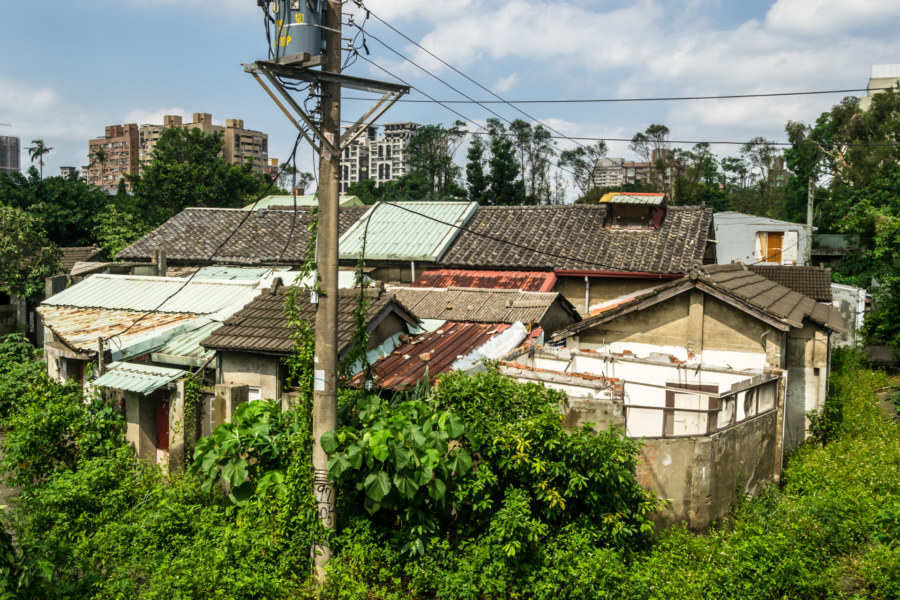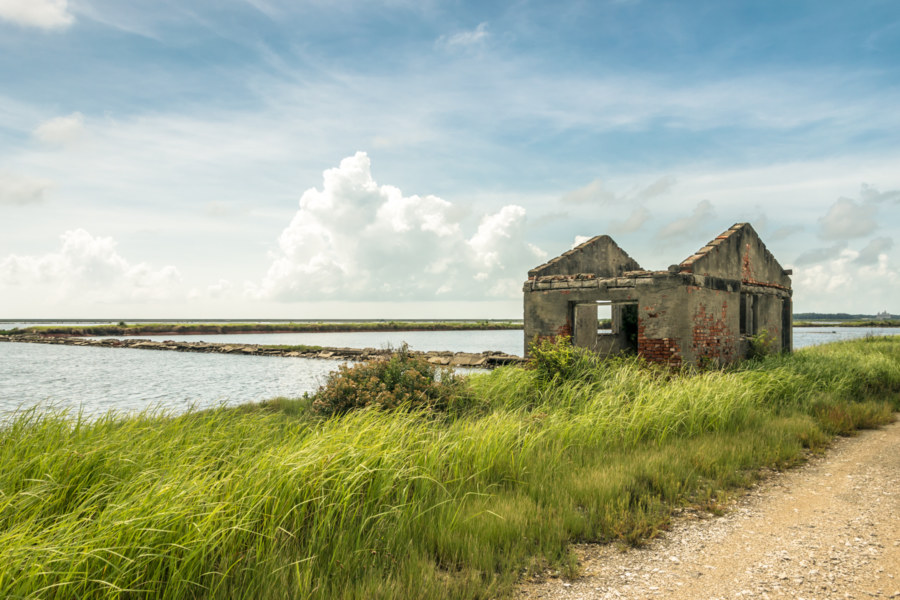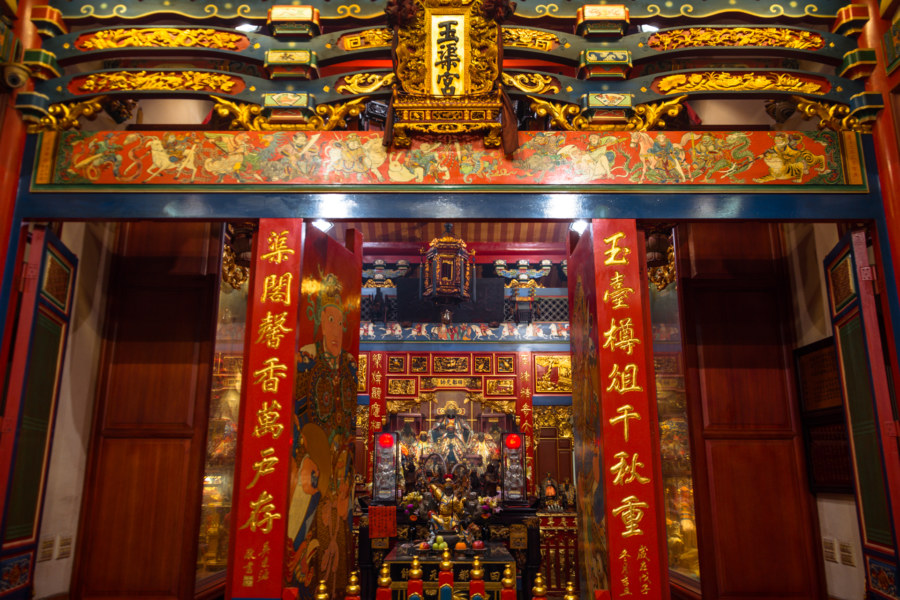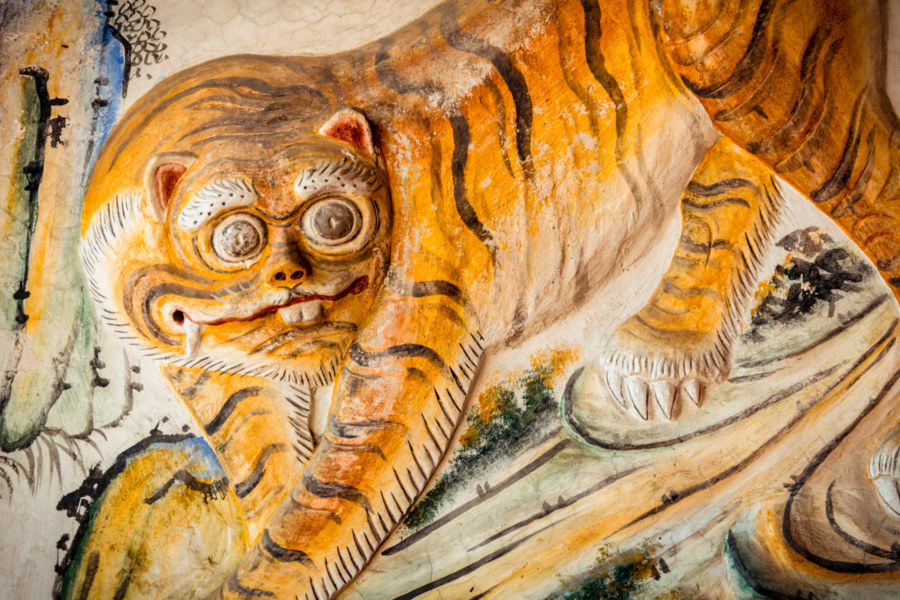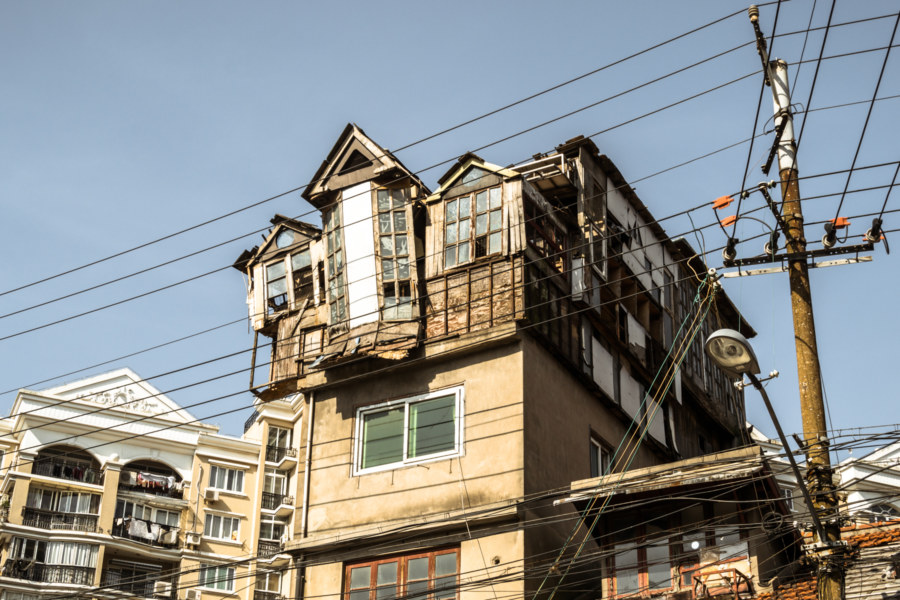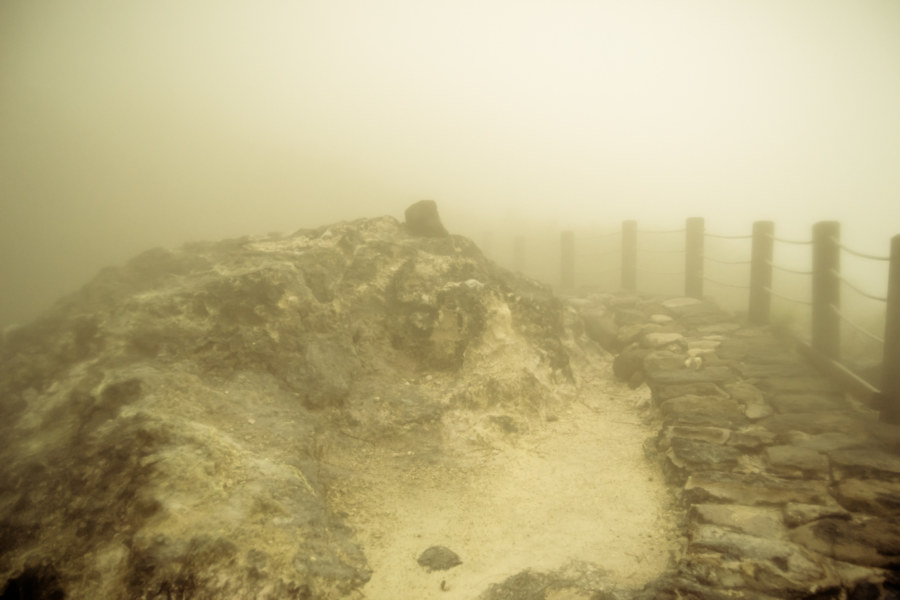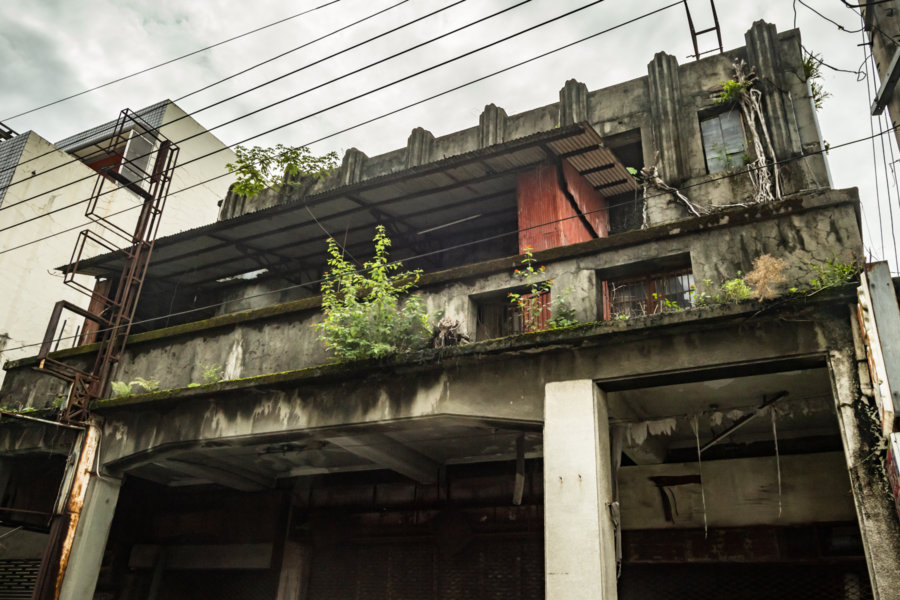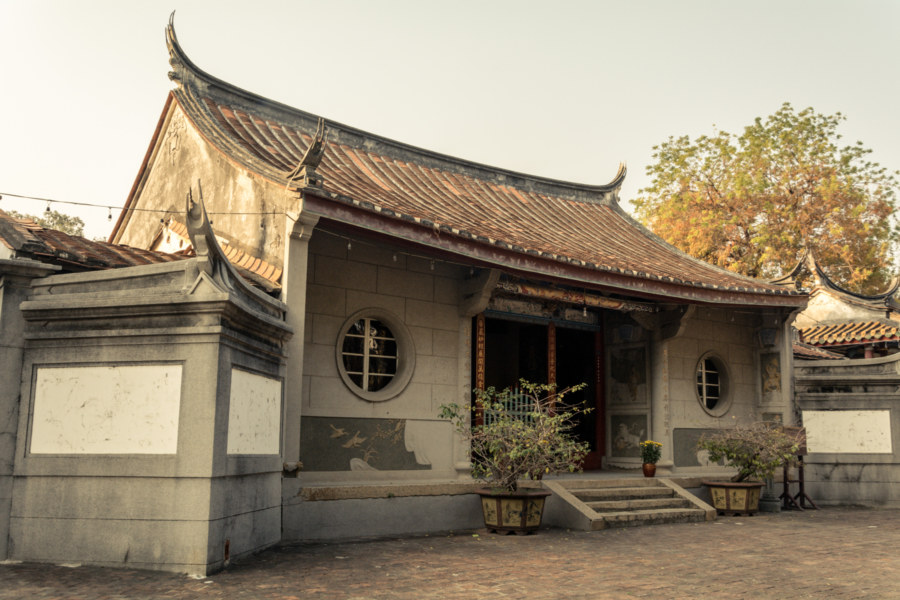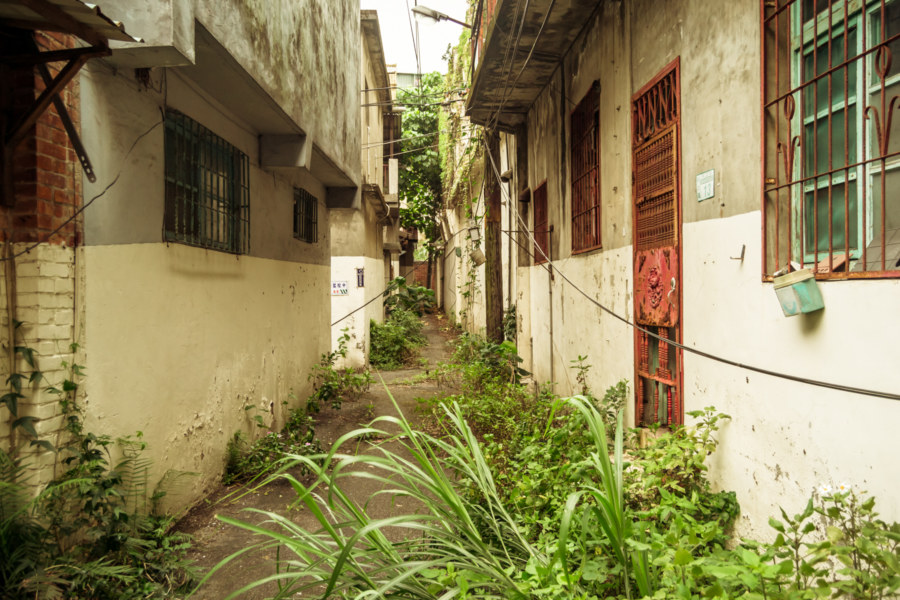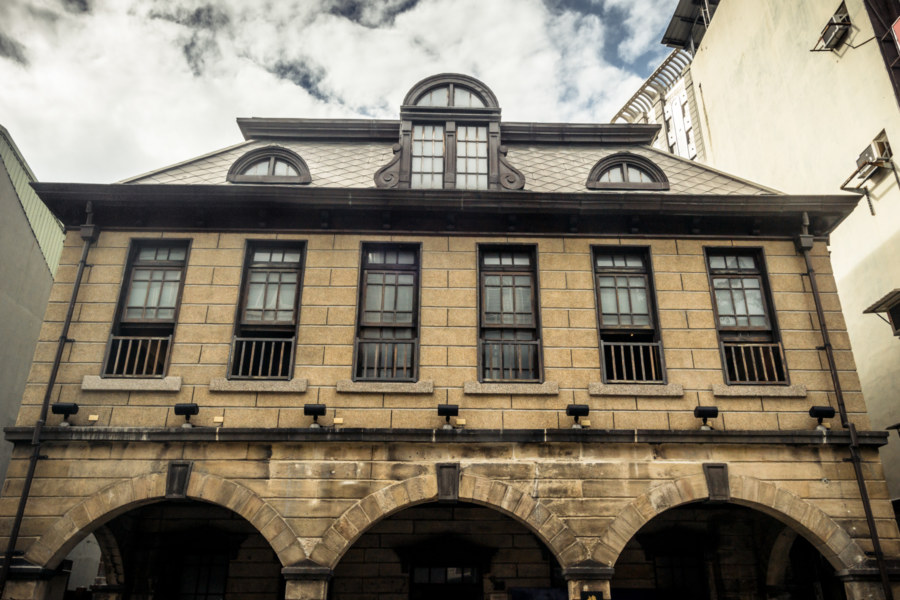Jiahe New Village (嘉禾新村) is one of more than 800 military dependents’ villages (Chinese: juàncūn 眷村) built in Taiwan in the late 1940s and 1950s to provide provisional housing for KMT soldiers and their families fleeing from the Chinese Civil War. Approximately two million people crossed the Taiwan Strait from China from 1945 to 1949, bolstering an existing population of approximately seven million. More than 600,000 of these Chinese immigrants ended up in military villages like this one in Zhongzheng, Taipei, which was forcibly abandoned only a couple of years ago as part of a wave of urban renewal projects sweeping the nation.
Geosophy is "the study of the world as people conceive of and imagine it". A lot of what I share is based on my subjective experiences of the places I go. Anything found here is experiential geography concerned with a specific place, a fundamentally flawed mapping of the world as seen through my eyes (and camera lens). See also: regions.
Adjacent Terms
Qingkunshen Fan-Shaped Saltern 青鯤鯓扇形鹽田
The southwestern coastal region of Taiwan is salt country. From Budai in Chiayi down through Beimen, Jiangjun, and Qigu in Tainan, an incredible expanse of manmade salt evaporation ponds sprawl across a completely flat and almost featureless landscape, much of it reclaimed from the briny lagoons that line the coast. Salt has been produced here for more than three centuries by channeling seawater into artificial enclosures and letting the strong tropical sun do the rest. Taiwan’s accession to the WTO in 2002 doomed the industry and all remaining salterns (or salt fields, if you like) were decommissioned that same year. This led to the abandonment of the unique Qīngkūnshēn Fan-Shaped Saltern (青鯤鯓扇形鹽田), now a surreal reminder of the history of salt production in southern Taiwan.
Lukang Yuqu Temple 鹿港玉渠宮
Yùqú Temple (玉渠宮) is a colourful temple in the back alleys of Lukang, one of the oldest and most traditional cities in Taiwan. Tracing its origins back to a simple shrine built in 1765, this small temple venerates Marshal Tian Du (田都元帥), the god of drama—and by extension traditional opera, theater, music, and other forms of performance art. Local gentry funded the construction of the first temple on this particular site in the twilight of Lukang’s commercial importance in 1902, during the Japanese colonial era. The temple underwent major renovations in 1967 and, in typical Taiwanese style, has been regularly improved and updated over the years.
Daodong Academy 道東書院
Dàodōng Academy (道東書院) is one of many Qing dynasty era academies scattered across central and southern Taiwan. Located in Hemei in Changhua, it was built in 1857, the 7th year of the Xianfeng Emperor (清咸豐七年), and operated as a private school devoted to classic Chinese literature, philosophy, and ethics, among other subjects. Commonly known to locals as Wénmiào (文廟, “Temple of Literature”), the academy also venerates Song dynasty scholar Zhū Xī (朱熹) and Kuí Xīng (奎星), the god of examinations.
Where Shanghai Disappears
Yesterday I was on my way to check out 1933 Shanghai 上海1933老场坊, a restored Art Deco slaughterhouse in Hongkou, when I stumbled upon a compact neighbourhood in the process of being torn down, part of an ongoing process of urban renewal in Shanghai. Every year more of these old areas are torn down, their residents forcibly evicted, new high-rises and shopping malls going up in their place. My time in Shanghai is too short to allow for any measure of expertise to grow—so all I have to share here are a few photos and some comments from a quick walk around (and through) the block.
A Foggy Hike in Yangmingshan 陽明山
These photographs were taken in early October 2013 while hiking around Yángmíngshān National Park (陽明山國家公園). After meeting up with a friend we took a bus from Jiantan Station in Shilin to Lengshuikeng with the intention of checking out Milk Lake (Niúnǎichí 牛奶湖). Racing up the meandering mountainside roads we soon found ourselves immersed in an interminable fog. Debarking at the bus stop, with hardly another soul around, we decided to wander around and see what we could make of our time in Yangmingshan.
Huaguo Theater 華國戲院
Huáguó Theater (華國戲院) is one of hundreds of abandoned theaters scattered around Taiwan. Located in Puli, a town of approximately 80,000 in the heart of Nantou, this particular theater was likely built in the late 1950s. From what I’ve read in an article by Wáng Hénglù (王亨祿), this theater was operated by a couple with the family name Zhōu (周) and specialized in showing Western films on a single screen before its inevitable demise.
Tainan Fahua Monastery 台南法華寺
Last year I briefly visited the historic Fahua Monastery 法華寺 in Tainan. Like many of my explorations of temples in Taiwan this one wasn’t planned in advance. I noticed the monastery from the roadside while riding through the back streets south of the train station and stopped to check it out on a whim. As it turns out, Fahua Monastery has quite a long and distinguished history—going all the way back to 1684—and the interior is unusually minimalistic and serene compared to most other temples I have visited here in Taiwan.
Jiangling New Village 江陵新村
Jiānglíng New Village (江陵新村) was one of more than 800 military dependents’ village in Taiwan before its ultimate destruction in mid-2015. It was formerly located not far from the confluence of Jingmei River (景美溪) and Xindian River (新店溪) just outside Taipei city limits in the northern part of Xindian. Immediately to the south is an active military base of some kind—and the historic Jingmei Prison can be found on the opposite side of the nearest major intersection.
Futai Street Mansion 撫臺街洋樓
In front of the historic Futai Street Mansion in central Taipei.
Futai Street Mansion 撫臺街洋樓 is a Japanese colonial era commercial building dating back to 1910. Located immediately to the south of Běimén 北門, recently the site of a major urban renewal project, it has been witness to more than a century of history here in the administrative heart of Taiwan. For more information I recommend reading this great article in Taiwan Today, this Taipei Times feature, and this post by Aris Teon. The mansion also has an official Facebook page if you’re interested in whatever events they might be hosting.…
